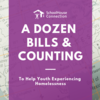Refundable Tax Credits Are Critical to Reducing Poverty and Hunger For Women, Children, and Families and Should be Expanded
Interactive
Federal tax credits, like the EITC and refundable CTC, provide critical supports for millions of working women, children, and families every year. They supplement low wages and can help soften the financial impact of fluctuating incomes or job losses.

